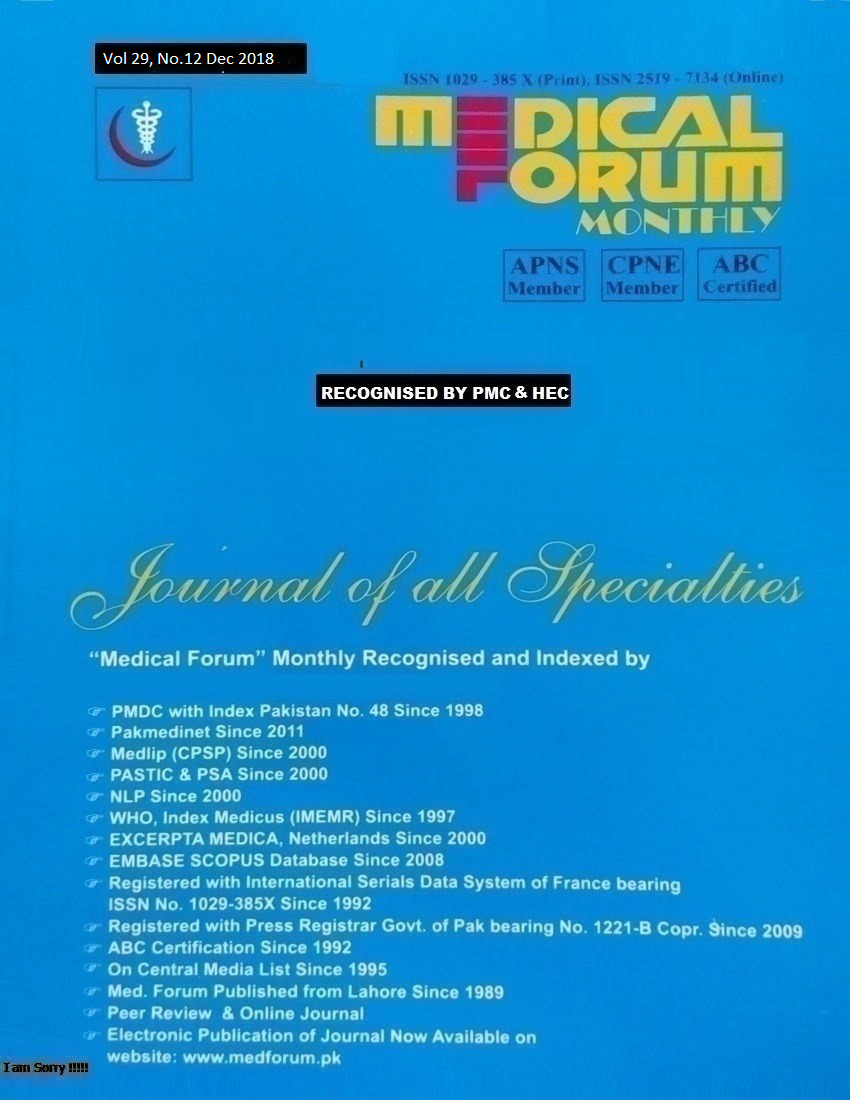
20. Effects of Epidural Analgesia on the Progress of Labour and Mode of Delivery
Ahmed-Ud-Din Soomro1, Tanweer Akhtar2 and Najia Bhatti3
ABSTRACT
Objective: To compare effects of epidural analgesia on the progress of labour and mode of delivery in two groups.
Study Design: Quasi -experimental study.
Place and Duration of Study: This study was conducted at the Department of Obstetrics & Gynecology,Shaikh Zaid Woman Hospital Larkana from 15 Dec 2013 to 1 Jun 2014.
Materials and Methods: 100 hundred patients of primigravida fulfilling the inclusion criteria were selected. Two groups were divide equally, Group I includes patients who had epidural block for labour analgesia Group II includes those patients who experienced labour without the block. Groups were compared with length of first and second stage of labour and the mode of delivery whether spontaneous or instrumental vaginal delivery.
Results: Mean extent of first period of labor in group I and II was 12.4+.6 hours 10.8+0.2 hours respectively. In groups I the mean extent of nextperiod of labor was 1.1+0.1 hours and in group II 1.2+0.3 hours. In the mode of delivery, in groups I, 84% patients were delivered by SVD and 16% patients were delivered by instrumental delivery. In group II, 88% patients were delivered by SVD and 12% patents were delivered by instrumental delivery.
Conclusion: It is concluded that women having epidural analgesia caused in shorter duration of first stage and second stage of labour than women without analgesia. Whereas, in epidural groupinstrumental vaginal as well as caesarean delivery rate was not increased.
Key Words: Epidural, analgesia, labor, delivery,mode, pain, instrumental delivery
Citation of articles: Soomro A, Akhtar T, Bhatti N. Effects of Epidural Analgesia on the Progress of Labour and Mode of Delivery. Med Forum 2018;29(12):79-81.
